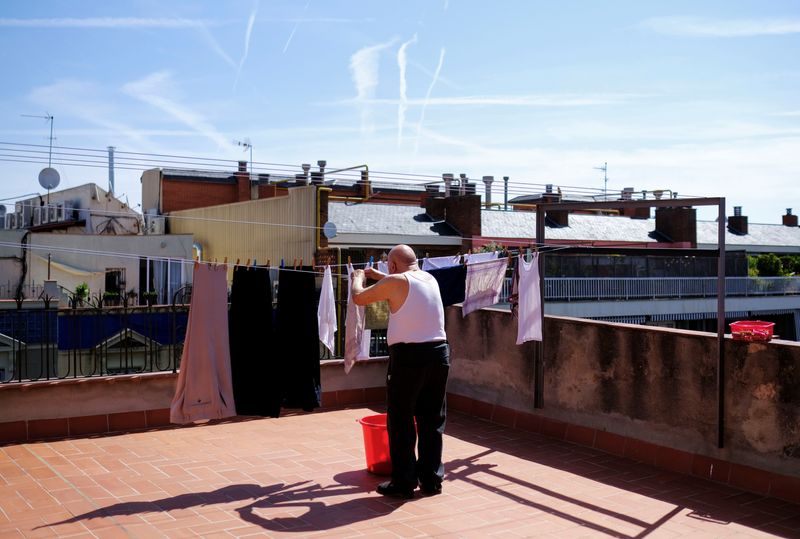MADRID (Reuters) - Spain announced a 9 billion euro ($9.50 billion) package of measures on Saturday to help its most vulnerable households cope with soaring energy prices and inflation, including subsidies for transport and a 80% reduction in energy bill taxes.
The announcement of the measures came after the government agreed the package of 5.5 billion euros ($5.80 billion) in spending for families and 3.6 billion euros ($3.80 billion) in tax cuts in an extraordinary cabinet meeting.
Pensions will be raised by 15% for the most vulnerable on retirement, including widows and the disabled, representing a 60 euro ($63) monthly increase.
From September, a 50% reduction will be introduced for those who already receive subsidised travel on national state rail or bus services plus a 30% cut for those using regional services.
Self-employed people on low incomes below 14,000 euros ($14,775) per year or who are unemployed will receive a one-off payment of 200 euros ($210). Prices for gas canisters, a common way to heat homes in Spain, will be fixed until 31 December.
Those most exposed to energy price rises, including the fishing industry and farmers, will be eligible for social security exemptions.
"We govern for the middle and working classes of this country although we know that this annoys some economic powers," Sanchez told reporters.
The government will introduce a bill to cut VAT on electricity bills by half to 5% which Sanchez said should come into force from January.
The new package will be in force until the end of 2022, Sanchez said on Friday.

The package follows measures approved in March and in force until the end of June, worth six billion euros in direct aid and tax cuts and 10 billion euros in soft loans to help companies and households cope with higher fuel prices.
($1 = 0.9475 euros)